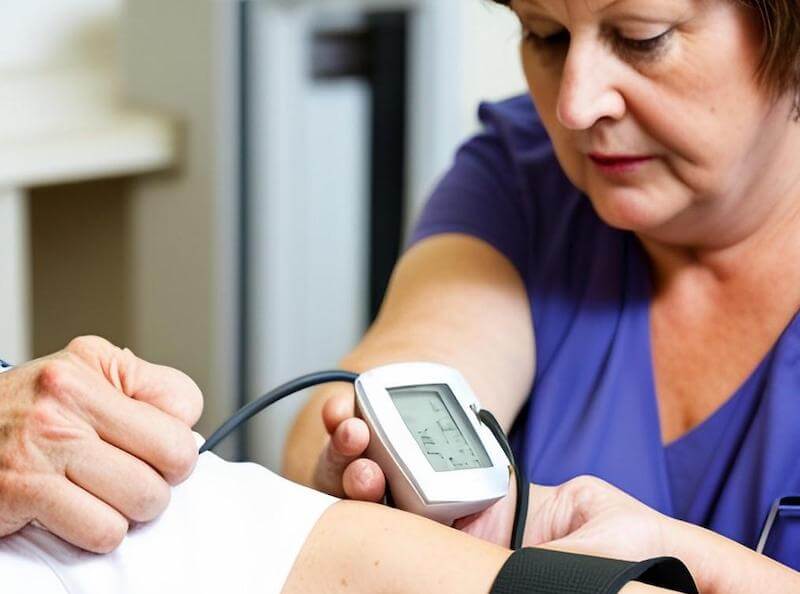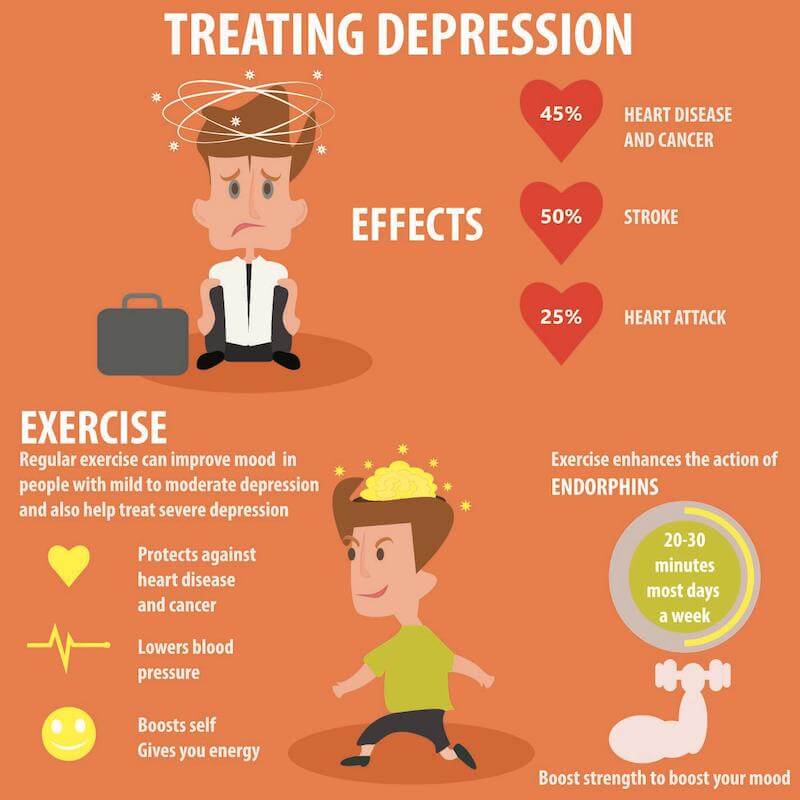In the intricate dance of health and aging, women over 50 often find themselves in a precarious position. As we journey through life, our bodies and minds undergo changes that can sometimes put us at risk for certain health conditions. For women who have crossed the half-century mark, there are unique health challenges waiting at this juncture of life.
Two such concerns, diabetes and depression, often cast a longer shadow over women aged 50 and above. But why is this so? In this article, we will unveil eight compelling reasons why women over 50 are more susceptible to these conditions.
From physiological shifts to lifestyle factors and societal influences, we’ll delve deep into each aspect, arming you with knowledge and strategies to navigate this stage of life with confidence and resilience.
So, let’s embark on this journey to better understand and manage your health after 50.
Entering this new phase of life brings with it a unique set of challenges, including an increased risk for certain health conditions like diabetes and depression.
In this article, we’ll delve into the reasons why women over 50 are more susceptible to these conditions, exploring the interplay of
- hormonal changes
- lifestyle factors
- mental health
We’ll also look at ways to manage and mitigate these risks, offering hope and guidance for those navigating this complex terrain.

Diabetes and depression can co-mingle
One particularly vulnerable group facing added risks are older women who suffer from both diabetes and depression.
By understanding why women in this stage of life can be more prone to diabetes and depression, we’re better placed to address these issues head-on with preventative measures such as lifestyle changes or medication if necessary.

8 reasons why women over 50 are at higher risk for diabetes and depression
As women reach their 50s, they often experience changes in physical and mental health. Here are some typical changes in health or symptoms of women in their 50s with diabetes and depression:

- Women over 50 with diabetes and depression may experience chronic fatigue and a loss of energy.
Women in their 50s often experience significant hormonal changes due to perimenopause, the transition period before menopause. These hormonal shifts, particularly in estrogen and progesterone, can lead to fluctuations in blood sugar levels, potentially impacting diabetes management.
Diabetes itself is a condition that interferes with the body’s ability to use and store glucose, which can lead to various hormonal imbalances.
For instance, insulin resistance, common in type 2 diabetes, forces the pancreas to produce more insulin to lower blood glucose levels, leading to hormonal imbalance.
We recommend natural herbs Maqui Berry extract and Gymenema Sylvestre blended with cinnamon to help tackle blood sugar issues in diabetics.

A supplement called Glucoberry has a good ratio of these herbs for diabetics.

Managing your blood sugar naturally to help increase insulin sensitivity
To help manage blood sugar and insulin sensitivity long term, with the goal of not requiring more and more insulin, take a Glucoberry supplement serving with Ceylon Cinnamon either in a supplement form or by adding a teaspoon to a hot or cold beverage to supercharge your natural ability to keep your blood sugar stabilized longer.
Diabetes UK shows a candid interview with a woman talking about why depression creeps up with a diabetic condition:
Depression in women in their 50s can also be linked to these hormonal changes. The fluctuations in estrogen and progesterone can affect mood and, in some cases, may trigger depression.
Additionally, it’s important to note that while hormonal changes can contribute to depression, they are not the sole cause. Other factors such as genetic predisposition, environmental factors, and personal circumstances also play a role.
Moreover, studies have found a strong association between diabetes and depression. Changes in brain chemistry related to diabetes may contribute to the development of depression. Diabetic neuropathy or blocked blood vessels in the brain, for instance, may lead to depression in people with diabetes.
- Women over 50 may have an increased risk of heart disease due to high blood pressure and high cholesterol levels.

- Women in their 50s with diabetes and depression are more likely to experience weight gain or difficulty losing weight.

- They may also have trouble sleeping, leading to irritability and difficulty concentrating during the day.
- Women with diabetes and depression in their 50s may also experience sexual changes is desire or satisfaction.

- They may have a higher risk of developing infections or slow healing of wounds due to poor blood sugar control.
- Women in their 50s may also be at a higher risk of developing eye problems such as retinopathy.

- Depression and anxiety can also lead to social withdrawal and a lack of interest in activities once enjoyed.

These changes may put women over 50 at a higher risk for developing health conditions like diabetes and depression.
Biological Factors that Put Women Over 50 at Risk for Diabetes and Depression
As women age, there are a number of biological factors that put them at risk for various health complications.
- Increased body fat: This can be due to hormonal changes, making it difficult to shed excess weight, and gain it easily.
- Hormonal Changes: The ending of the transition into menopause involves significant changes in hormone levels, including estrogen and progesterone.
These hormones play a role in regulating glucose metabolism and mood, which can affect the risk of developing diabetes and depression.
- Genetic Factors: Women who have a family history of diabetes or depression are at a higher risk, suggesting a genetic predisposition to these conditions.
- Insulin Resistance: This condition occurs when cells in the body don’t respond properly to insulin, causing the pancreas to produce more insulin. This can lead to type 2 diabetes.

- Weight Gain: Hormonal changes during and after menopause can lead to weight gain and an increased risk of developing diabetes. Incorporating exercise into your daily routine can greatly reduce excessive weight gain while also helping with depression.

- Inflammation: Chronic inflammation has been associated with an increased risk of both diabetes and depression.
Stress can be one of the driving factors for chronic diseases.

- Stress: Chronic stress can disrupt normal physiological processes and lead to hormonal imbalances, increasing the risk of diabetes and depression.
- Thyroid Disorders: Conditions such as hypothyroidism can cause symptoms like fatigue and weight gain, which can increase the risk of diabetes, and also contribute to depression.
- Neurobiological Factors: Changes in brain structure and function due to aging can increase the risk of depression.
- Vitamin D Deficiency: Some studies suggest that low levels of vitamin D may be linked to an increased risk of type 2 diabetes and depression.
It’s important to note that while these biological factors can increase the risk, they are not the sole determinants of these conditions.
Lifestyle, environmental, and social factors also play a significant role in the development of diabetes and depression.

Despite these risks, there are many things women can do to prioritize their health and reduce their risk of developing these conditions, including eating a healthy diet, exercising regularly, and staying on top of recommended medical exams and check-ups.
Psychological factors that contribute to higher risk of diabetes and depression for women over 50
When it comes to addressing higher risk factors, we must consider the multitude of potential contributors, both psychological and environmental.
From a psychological perspective, factors such as:
- stress levels
- mental health conditions
- personal mindset
These can all play a role in determining an individual’s risk level.
Johns Hopkins Medicine with Dr. Sherita Golden shares a video titled “Why are Depression and Diabetes Linked?
Environmental factors that contribute to higher risk of diabetes and depression for women over 50
Environmental factors, on the other hand, might include:
- living conditions
- access to resources

- exposure to various hazards

By taking a holistic approach and considering all of these factors, we can better understand why certain individuals might be at a higher risk and develop targeted interventions to address those risks.
Ultimately, when it comes to reducing risk factors, knowledge truly is power.
The Link between Diabetes and Depression in Women Over 50
Diabetes and depression are two diseases that have been found to have a close connection. They are both common in the adult population and can lead to negative effects on quality of life.
Research has shown that there is an even stronger link between diabetes and depression in older adults. As the body ages, it becomes more susceptible to developing chronic diseases such as diabetes. This, in turn, can lead to an increased risk for depression.

Managing both diseases in this age group can be challenging, as they often require lifestyle changes and medication adherence. It’s important for older adults with diabetes to address their mental health as well, as the two diseases are intricately linked.
Evaluate Lifestyle Changes That Can Reduce Risk
Living a fulfilling life is all about striking a balance between healthy habits and enjoying the things we love. With that being said, there are some lifestyle changes that we can make to reduce our risk of developing certain health conditions.

For example, focusing on a wholesome diet and engaging in regular exercise not only strengthens our immune system and improves our mental health, but also lowers our chances of developing diabetes, heart disease, and cancer.
It’s also crucial to practice stress management techniques and get enough sleep.

By taking a proactive approach towards our health and making simple adjustments to our daily routines, we can effectively reduce our risk of developing major health concerns and live happier, healthier lives.
Stress Management Tips to Help Lower Risk of Diabetes & Depression in Women Over 50
As women age, their risk for developing diabetes and depression increases. However, there are several stress management tips that can help lower these risks.
First and foremost, exercise is key. Not only does it help with physical health, but it also releases endorphins that can improve mood.


Additionally, practicing mindfulness techniques such as meditation or deep breathing can help reduce stress and improve overall well-being.

Making sure to prioritize self-care and take breaks when needed is also important, as pushing oneself too hard can lead to burnout and increased stress levels.
Concluding thoughts on why women over 50 are at higher risk for diabetes and depression
By incorporating these stress management tips into their daily routine, women over 50 can lower their risk for diabetes and depression while improving their overall quality of life.

An understanding of why women over 50 are at higher risk of developing both diabetes and depression is the first step toward taking part in preventive measures that will aid lifelong physical & mental wellbeing.
The links used on thewellthieone.com are affiliate links, which may provide a small commission. This does not increase the price of the goods for the consumer whatsoever. What it does is ensure that useful content like this can continue to be produced. Thank-you for enjoying our content and allowing us to continue to provide more.
Sources and additional reading
Sources: Joinzoe, WebMD, National Institute on Aging, SMH, Womenscareobgyn, Mainlinehealth, Kendalathome, Sharp, Prevention.
- WebMD ↩
- Mayo Clinic ↩
- British Medical Journal ↩
- NCBI, Mayo Clinic, Diabetes Journals, BioMed Central, CDC, Stanford Medicine, WebMD, Diabetes UK, Harvard School of Public Health







